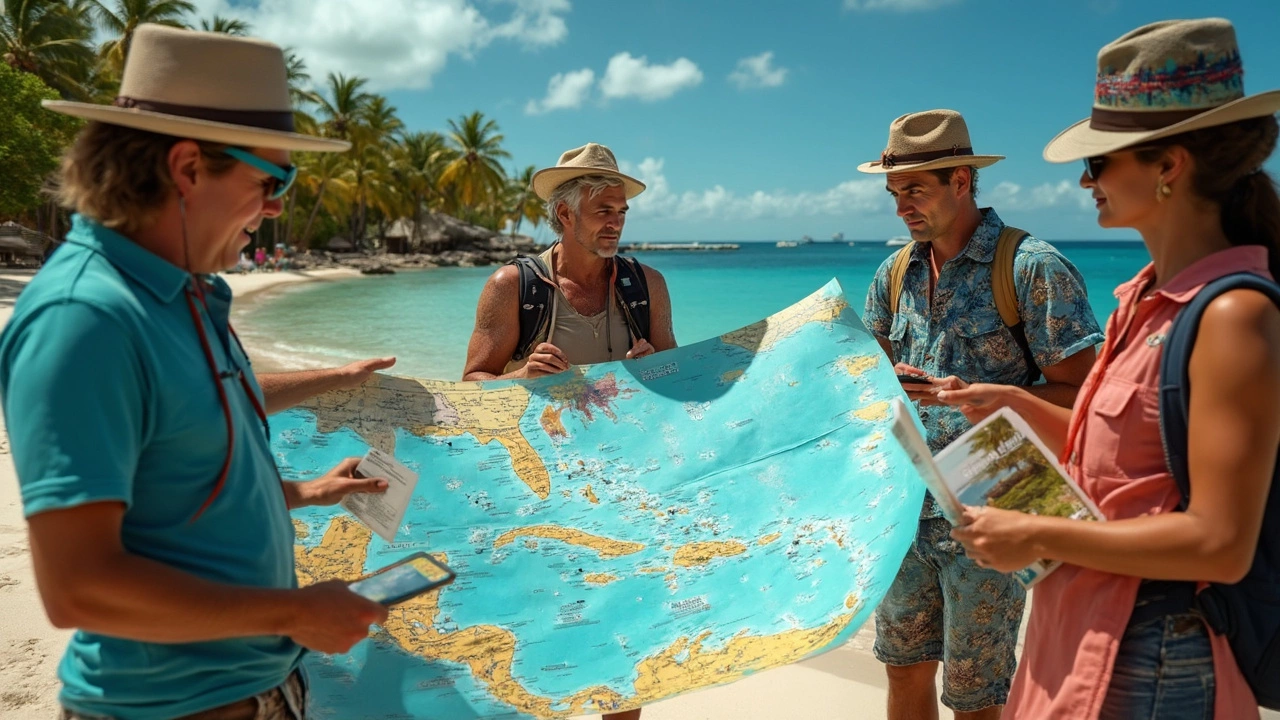Caribbean Travel Safety: Real Tips for a Worry‑Free Vacation
Did you know that over 70% of tourists who feel unsafe on a Caribbean island cite simple missteps like leaving valuables unattended? The good news is you can dodge most problems with a few common‑sense moves.
Know the Local Risks Before You Arrive
Every island has its own hot spots. In Jamaica, the popular resort areas are usually safe, but neighborhoods like Kingston’s downtown can see higher petty crime rates after dark. In the Dominican Republic, stick to well‑lit streets near hotels and avoid isolated beaches at night. A quick check on your country’s travel advisory page will tell you which zones to skip.
Pack a small, lockable pouch for your passport, cash, and cards. Keep it close to your body and never leave it in a beach bag. If you’re staying in a hostel, use the provided lockers – they’re usually sturdy enough to deter opportunistic thieves.
Health and Emergency Prep
Sunburn, dehydration, and mosquito‑borne illnesses are the top health concerns. Bring a high‑SPF sunscreen, a reusable water bottle, and a simple insect repellent with DEET. Most islands have reliable medical clinics, but they can be far from remote resorts, so a basic first‑aid kit is worth the space in your luggage.
Know the local emergency number: 911 works in many Caribbean territories, but places like the Bahamas use 999, and Aruba uses 911 as well. Save the number in your phone and write it on a piece of paper in case your battery dies.
Travel insurance isn’t optional if you plan on water sports or adventure tours. Look for policies that cover medical evacuation – a quick trip to a US hospital can cost tens of thousands of dollars.
When you rent a car, inspect it inside and out before you drive off. Take photos of any scratches or dents; it saves you a dispute later. Also, keep the rental agreement handy and note the nearest police station in case of an accident.
Use reputable tour operators. Check reviews on sites like TripAdvisor and verify that guides have proper licenses. A licensed guide can navigate you away from unsafe areas and provide local insights you won’t find online.
Stay connected. A local SIM card gives you a reliable data plan and a local number for emergency calls. Most hotels offer free Wi‑Fi, but it can be slow; a backup connection ensures you can call for help if needed.
Finally, trust your gut. If a street feels off or a vendor seems pushy, walk away. Most locals appreciate respectful visitors and will point you toward safer alternatives.
By planning ahead, keeping valuables secure, and staying health‑smart, you can enjoy the Caribbean’s turquoise waters and vibrant culture without constantly looking over your shoulder. Safe travels!

Least Safe Caribbean Island: What You Need to Know Before Your Beach Vacation
Planning a beach trip to the Caribbean but worried about safety? This article cuts through the rumors and lays out which Caribbean island is considered the least safe, why that’s the case, and what dangers you should actually look out for. Get honest info on crime rates, what travelers have experienced, and learn how to keep yourself safe. If you still want to visit, you’ll find straightforward tips on staying out of trouble and making the most of your time. It’s everything you need to plan a safer Caribbean vacation.
